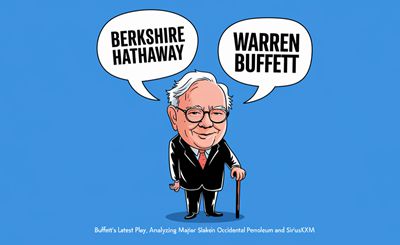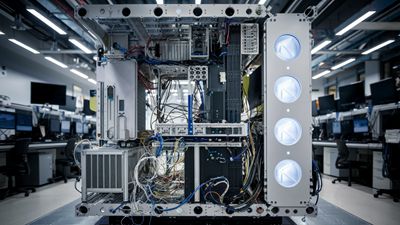Apollo’s Multibillion-Dollar Investment in Intel Amid Qualcomm’s Takeover: Strategic Implications
Apollo Global Management Inc. proposed a significant investment of up to $5 billion in Intel Corp., signaling confidence in Intel’s turnaround strategy under CEO Pat Gelsinger. Concurrently, Qualcomm Inc. has expressed interest in acquiring Intel, potentially leading to one of the largest mergers in the technology sector. This report delves into the implications of Apollo’s investment offer, Qualcomm’s takeover approach, and the broader context of Intel’s current financial and market challenges. The analysis is based on recent developments and aims to provide a detailed, fact-based perspective on the potential outcomes and strategic considerations for Intel.
Introduction
Apollo’s Investment Proposal
Background and Context
Apollo Global Management Inc., a leading private equity firm, has a history of investing in distressed assets and companies undergoing significant transformations. In September 2024, Apollo proposed an equity-like investment of up to $5 billion in Intel Corp. This move is seen as a vote of confidence in Intel’s turnaround strategy, which aims to introduce new products and technologies to the market.
Details of the Investment
The proposed investment by Apollo is substantial, especially considering Intel’s current financial challenges. Intel’s shares have declined nearly 60% this year, and the company reported over $7 billion in operating losses in its chipmaking business for fiscal 2023. Apollo’s investment could provide much-needed capital to support Intel’s restructuring efforts and stabilize its financial standing.
Previous Investments and Strategic Interests
Earlier in 2024, Apollo invested $11 billion to acquire a 49% stake in Intel’s Fab 34 chip manufacturing facility in Leixlip, Ireland. This previous investment indicates Apollo’s growing interest in Intel’s operations and its willingness to support the company’s long-term strategy. Apollo’s background in distressed investing aligns with its interest in Intel, as the chipmaker navigates through challenging times.
Qualcomm’s Takeover Approach
Background and Context
Qualcomm Inc., a major player in the semiconductor industry, has expressed interest in acquiring Intel. This potential takeover could lead to one of the largest mergers and acquisitions (M&A) in the technology sector. Qualcomm’s approach comes at a time when Intel’s market capitalization stands at over $90 billion, despite a significant decline in stock value this year.
Details of the Takeover Proposal
Qualcomm’s interest in acquiring Intel suggests a more aggressive and consolidation-focused strategy compared to Apollo’s investment approach. The potential deal could face significant regulatory challenges, including antitrust and national security issues, given the companies’ operations in China and previous regulatory scrutiny in other acquisitions.
Market Reactions and Implications
Following the news of Qualcomm’s approach, Intel’s shares rose about 3%, while Qualcomm’s shares fell approximately 3%. This mixed market reaction reflects the uncertainty and potential risks associated with such a large-scale merger. If successful, the acquisition could reshape the competitive landscape of the semiconductor industry, with significant implications for both companies.
Intel’s Current Financial and Market Challenges
Declining Earnings and Market Value
Intel has faced a series of financial challenges in recent years. The company’s shares have declined nearly 60% this year, and it reported over $7 billion in operating losses in its chipmaking business for fiscal 2023. These financial struggles are attributed to Intel’s failure to adapt to the rise of artificial intelligence and increased competition from companies like AMD and Arm Ltd.
Strategic Transformation Under CEO Pat Gelsinger
Under the leadership of CEO Pat Gelsinger, Intel has embarked on a costly transformation to enhance its product lineup and attract new customers. This strategy involves significant investments in new technologies and manufacturing capabilities, with a projected cost of around $100 billion over the next five years. While this transformation aims to position Intel as a leader in the semiconductor industry, it has also led to declining earnings and a substantial drop in market value.
Market Position and Competitive Landscape
Intel’s market position has shown signs of improvement following recent developments involving potential investments and acquisition offers. The company’s shares gained approximately 11% last week, closing at $21.84 after a 3.3% increase on Friday. Technical analysis indicates that Intel’s stock may be forming a double bottom pattern, signaling a potential trend reversal. Key resistance levels to watch are at $22, $25, $30, and $35.
Strategic Considerations and Potential Outcomes
Apollo’s Investment: Pros and Cons
Apollo’s proposed investment offers several potential benefits for Intel. The infusion of capital could support Intel’s restructuring efforts, stabilize its financial standing, and facilitate future growth. Additionally, Apollo’s background in distressed investing aligns with Intel’s current challenges, providing a strategic partner with experience in navigating complex transformations.
However, there are also potential risks associated with Apollo’s investment. The size of the investment may change, and there is no guarantee that a final agreement will be reached. Additionally, the infusion of capital alone may not be sufficient to address Intel’s underlying challenges, including increased competition and the need for significant technological advancements.
Qualcomm’s Takeover: Pros and Cons
Qualcomm’s potential takeover of Intel presents a different set of strategic considerations. If successful, the acquisition could lead to significant consolidation in the semiconductor industry, potentially creating a more competitive and diversified company. The combined resources and capabilities of Qualcomm and Intel could drive innovation and growth in key areas such as artificial intelligence and chip manufacturing.
However, the potential takeover also faces significant regulatory challenges, including antitrust and national security issues. Additionally, the integration of two large and complex organizations could present operational and cultural challenges, potentially impacting the success of the merger.
Potential Impact on Intel’s Future
The outcomes of Apollo’s investment and Qualcomm’s takeover approach will have significant implications for Intel’s future. Apollo’s investment could provide the financial support needed to stabilize Intel’s operations and support its long-term strategy. In contrast, Qualcomm’s takeover could lead to a more transformative change, potentially reshaping the competitive landscape of the semiconductor industry.
Ultimately, the success of either approach will depend on Intel’s ability to navigate its current challenges, adapt to changing market dynamics, and leverage the resources and capabilities of its strategic partners.
Conclusion
In conclusion, Apollo Global Management’s proposed $5 billion investment and Qualcomm’s potential takeover approach represent two distinct strategic paths for Intel Corp. Apollo’s investment offers a vote of confidence in Intel’s turnaround strategy and provides much-needed capital to support its restructuring efforts. In contrast, Qualcomm’s takeover approach suggests a more aggressive and consolidation-focused strategy, with significant potential benefits and risks.
As Intel navigates through its current financial and market challenges, the outcomes of these strategic developments will play a crucial role in shaping the company’s future. The decisions made by Intel’s executives in the coming months will determine the company’s ability to regain its market position, drive innovation, and compete effectively in the rapidly evolving semiconductor industry.


